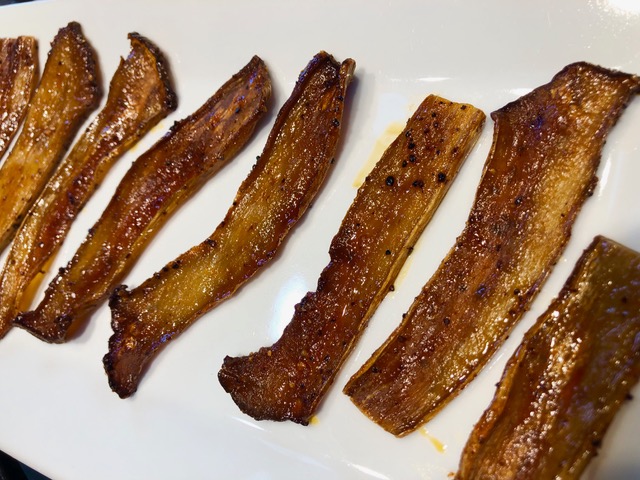By using our website, you agree to the use of cookies as described in our Cookie Policy
Blog
Sauce or Gravy?
Ongoing research and development of products for our specialty food company, even the seemingly fun and simple task of properly naming items can be daunting. An obvious example was our Black Crack. Tons of trepidation abounded as under no circumstances would we support even the reference of illegal substances. But, after a lot of research, we did settle on this novel name because of one important fact- that's exactly what it is: our farm grown and made organic black garlic that is meticulously cracked after an artisan process that takes over two years to complete. Associated references by our customers and a wonderful endorsement by SAVEUR Magazine as to its addictive appeal is purely coincidental.
Inventors and companies in almost all industries spend extraordinary resources in this regard, as clever word play on product identification and formal naming certainly can aid in brand recognition and marketing. As a small-ish company, even we feel pressure to develop the best product names for proper identification and branding. More importantly, we're sensitive to and demand high moral, ethical and culinary/cultural accuracy.
Recently, products in our pipeline and associated applications (mostly recipes) has lead us to decide between a seemingly easy decision between "sauce" or "gravy". In reality, it's probably insignificant and most people could not care less, but as usual we really want to get it right. More than ten cultural/culinary references address both historical and more contemporary guidelines for what is a sauce and what is gravy. Further complicating the issue, regionality preferences, dialect and errors in language translation has led to confusion.
A prime example is a strongly held regional reference toward a tomato-based accompaniment mostly used with pasta by Italians and others as gravy, or sometimes tomato gravy, versus sauce. It was interesting to learn that the use of the word gravy stems from Italian, and most specifically Sicilian tradition, referring to their Sunday gathering meal. Further, there is strong evidence that the native Italian words for sauce and gravy were misinterpreted by immigrants and their translation into English. So, it appears that the term gravy is anecdotal as opposed to being historically or culinarily correct.
It appears that by definition, although it would be cool to call what we're working on a gravy, it would be a misnomer as it is vegetarian and relies on natural reduction and uses no thickeners. We'll keep you posted.
"What's in a name? A black garlic clove by any other name will still taste as sweet."






